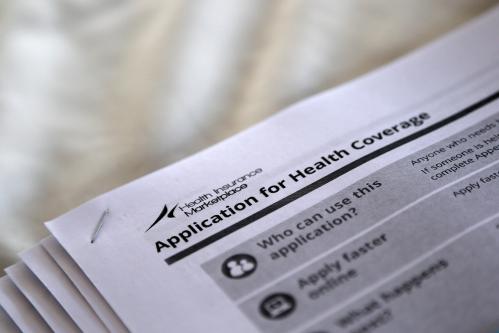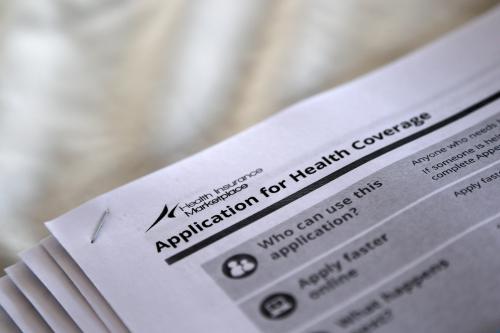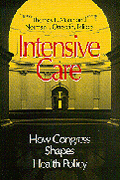This post originally appeared in the New York Daily News.
John McCain returned to Washington, D.C., bravely fighting two tumors. One is the malignancy caused by the glioblastoma cancer in his brain. The other is health-care reform, a political tumor that is crippling the Republican Party.
In a Senate floor speech that will long be remembered, McCain, an Arizona Republican and the party’s 2008 presidential nominee, pleaded with his fellow Republicans to reconsider their strategy. Instead of ramming through an ill-conceived, hastily assembled, and entirely partisan health-care bill with hardly any deliberation, the Senate should let committees hold hearings and work across party lines to craft a balanced reform with support from both sides. You know: legislate.
McCain was right. Moreover, most of his Senate Republican colleagues understand he is right. Most of them know their approach to health care is something akin to group suicide.
They know, for example, that the various Senate bills to “repeal and replace” Obamacare, like the version passed by the House, are unworkable. The bills are masses of contradictions, hopelessly trapped between imperatives to deregulate markets and cut costs while also maintaining coverage and affordability. If adopted, the proposals would crater private insurance markets and drop millions from the insurance rolls. If such poorly designed proposals managed to be enacted into law, Congress would spend the next five or ten years desperately trying to patch them.
McCain’s colleagues also know that reforming a sixth of the economy by scribbling a plan on the back of an envelope, and then rushing it to enactment with barely time to read it, is an absurd way to legislate. Writing devilishly complicated laws without transparency, and without input from most of the affected parties, and without expert testimony, and without the involvement of most members of the Senate cannot possibly produce good results.
Senate Republicans also know that if their hasty reform got enacted, it would kill them politically. The Republican repeal/replace proposals are massively unpopular with the public. If the proposals became law, tens of millions of Americans would lose access to health insurance as markets imploded and options disappeared. Those affected would include millions of working-class voters who provided the Republican swing vote in 2016. Angered, they could easily swing back.
Something else Senate Republicans know: President Trump will throw them under the bus. He has already called the House bill, which he ostensibly supported, “mean.” He will encourage the Senate to pass something unpopular, sign it, and then brassily campaign against it. The tweets practically write themselves. “Nasty congressional health plan hurts our working class. Sad! Only I can fix it!”
Senate Republicans know, too, that the public is running out of patience with health-care half measures and improvisations. Single-payer insurance is waiting in the wings. Republicans who imagine they can leave Obamacare to implode overlook that the current debate may well be conservatives’ last opportunity to save private health insurance. Failure to make the health system work will cause a backlash toward what Republicans fear most, socialized medicine.
And guess what? Trump, who has expressed support for single-payer on multiple occasions, would be fine with that. If single-payer looked like a political win, he would gladly sign it.
To avoid multiple disasters, Republicans have only one hope. Exchange “repeal and replace” for “retain and repair.” Do as McCain advises: attempt to write serious, bipartisan legislation.
The political price would be high. If they agreed to negotiate at all, the Democrats would demand explicit repudiation of the “repeal” mantra. They would insist on keeping Medicaid whole and keeping today’s Obamacare population insured. Even if the Senate passed a strong bipartisan bill, the House might kill it. The conservative-entertainment complex, of course, would be rageful and vengeful.
A bitter pill, no doubt. But the alternatives are poison pills. And, lest we forget, there is one other reason to consider McCain’s advice. It could improve the country’s unstable and unsatisfactory health-care system.
Back in the late 2000s, when Obamacare was cobbled together by the Democrats, the country missed an opportunity. In the 2008 presidential campaign, the health-reform proposals of Democrat Barack Obama and Republican John McCain had complimentary strengths. If only we could have stapled them together, we would have had a pretty darn good system. Regulations would have moved the country toward universal coverage, tax credits would have helped people buy insurance through private markets, and market reforms would have reduced distortions that drive costs up and transparency down.
What was true then is probably still true: bipartisan reform not only would enjoy more durable public support, it might actually work.
So listen, Republicans, to John McCain. “See if we can pass something that will be imperfect, full of compromises, and not very pleasing to implacable partisans on either side, but that might provide workable solutions to problems Americans are struggling with today.” His prescription offers the best hope of treating the Republicans’ health-care malignancy.
The Brookings Institution is committed to quality, independence, and impact.
We are supported by a diverse array of funders. In line with our values and policies, each Brookings publication represents the sole views of its author(s).











Commentary
Ever-courageous John McCain returns to D.C., battling both cancer and malignant politics
July 27, 2017